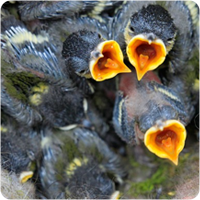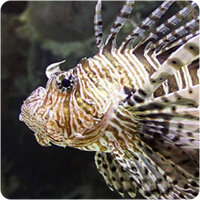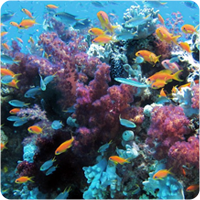Het arrangement Environment v456 is gemaakt met Wikiwijs van Kennisnet. Wikiwijs is hét onderwijsplatform waar je leermiddelen zoekt, maakt en deelt.
- Auteur
- Laatst gewijzigd
- 28-11-2025 12:03:39
- Licentie
-
Dit lesmateriaal is gepubliceerd onder de Creative Commons Naamsvermelding-GelijkDelen 4.0 Internationale licentie. Dit houdt in dat je onder de voorwaarde van naamsvermelding en publicatie onder dezelfde licentie vrij bent om:
- het werk te delen - te kopiëren, te verspreiden en door te geven via elk medium of bestandsformaat
- het werk te bewerken - te remixen, te veranderen en afgeleide werken te maken
- voor alle doeleinden, inclusief commerciële doeleinden.
Meer informatie over de CC Naamsvermelding-GelijkDelen 4.0 Internationale licentie.
Het thema 'Environment' (v456) is ontwikkeld door auteurs en medewerkers van StudioVO.
Fair Use
In de Stercollecties van StudioVO wordt gebruik gemaakt van beeld- en filmmateriaal dat beschikbaar is op internet. Bij het gebruik zijn we uitgegaan van fair use.
Meer informatie: Fair use
Mocht u vragen/opmerkingen hebben, neem dan contact op via de
helpdesk VO-content.
Aanvullende informatie over dit lesmateriaal
Van dit lesmateriaal is de volgende aanvullende informatie beschikbaar:
- Toelichting
- Dit thema valt onder de arrangeerbare leerlijn van de Stercollectie voor Engels voor vwo, leerjaar 4,5 en 6. Dit is thema: 'Environment'. Dit thema omvat de volgende volgende onderwerpen: - Global temperature - Elephant numbers - Great Barrier Reef - Supermarkets in France De grammaticaopdrachten gaan over het gebruik van 'wish' en de 'future perfect'.
- Leerniveau
- VWO 6; VWO 4; VWO 5;
- Leerinhoud en doelen
- Engels;
- Eindgebruiker
- leerling/student
- Moeilijkheidsgraad
- gemiddeld
- Studiebelasting
- 16 uur 0 minuten
- Trefwoorden
- arrangeerbaar, elephant numbers, engels, environment, global temperature, great barrier reef, stercollectie, supermarkets in france, v456
Gebruikte Wikiwijs Arrangementen
VO-content Engels. (2021).
Declining elephants numbers v456
https://maken.wikiwijs.nl/172805/Declining_elephants_numbers_v456
VO-content Engels. (2021).
Global temperature v456
VO-content Engels. (2021).
Great barrier reef v456
VO-content Engels. (2021).
Supermarkets in France v456
https://maken.wikiwijs.nl/172807/Supermarkets_in_France_v456

 Environment
Environment What do you need to know?
What do you need to know?

 Introduction - Global temperature
Introduction - Global temperature


 Listening & Speaking
Listening & Speaking Reading
Reading Difficult words? Search these on
Difficult words? Search these on 
 Grammar
Grammar

 Task: Writing an email (a report)
Task: Writing an email (a report) What have you learned in this lesson?
What have you learned in this lesson? Introduction - Declining elephant numbers
Introduction - Declining elephant numbers Speaking
Speaking by Denise Haggerty
by Denise Haggerty

 Introduction - The Great Barrier Reef
Introduction - The Great Barrier Reef Speaking
Speaking


 Grammar
Grammar Task: Write a letter
Task: Write a letter Introduction - Supermarkets in France
Introduction - Supermarkets in France Speaking
Speaking It's now illegal for supermarkets to waste food in France
It's now illegal for supermarkets to waste food in France Grammar
Grammar

 Global warming hotheads - A plastic ocean
Global warming hotheads - A plastic ocean At the end of each lesson you answered evaluation questions.
At the end of each lesson you answered evaluation questions.